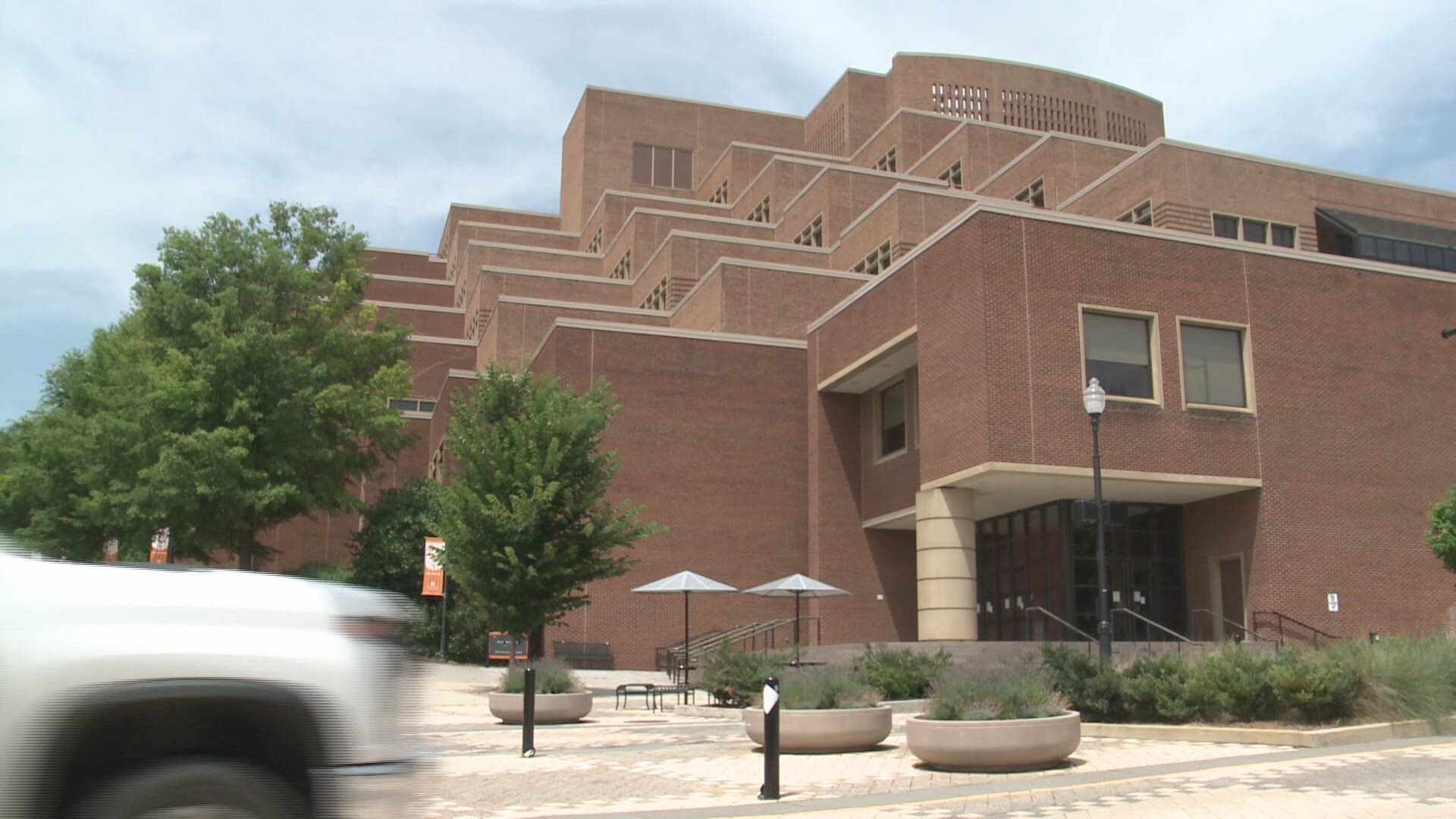KNOXVILLE, Tenn. — With a few short weeks until classes start at the University of Tennessee, numerous measures are being put in place to keep students, staff and faculty safe amid the pandemic.
The COVID-19 Surveillance Program consists of four parts that will monitor the early signs of the virus. It will help keep an eye on questionable, possible and known outbreaks.
“If you want an on-campus experience then you've got to be willing to adhere," said Dr. Spencer Gregg who is the incident commander for the school's pandemic response plan.
While UT is back up and running, he said it’s up to students and employees to keep it that way.
“The real key is to try to identify those individuals who may not realize they're sick," said Gregg. “One of the safest places to be is in one of our classrooms.”
Every day students and employees do a daily health screening through an app. The screening will look for possible exposures, possible symptoms and check to see if people tested positive, officials said.
If there’s a concern, the app will tell them not to come to campus. They'll then be prompted to fill out a self-isolation form. The form will ask for information like where they were last on campus, how many days they were on campus and what their symptoms are.
That will notify the school’s contact tracing team and provide further guidance to seek a healthcare provider if it's an employee, or to go to the student health center if it's a student.
The majority of that process will be cleared by the app, but another system is in place: wastewater testing of around 45 on-campus sites, including dorms and Greek housing.
“What we were testing for is evidence of the virus in wastewater," Gregg said. "What it does is prompts us to say that’s a facility we need to be concerned about.”
Even if a site tests positive, it doesn’t mean there’s an infection. Gregg said the virus can live for weeks in wastewater. So, officials may start saliva testing to determine if a group is infected.
Tests will be conducted on saliva pools. If one comes back positive, the person will be notified.
Gregg said the process isolates and quarantines positive or at-risk people long before test results come back.
“We're trying to get really out in front of our students living on campus residential sites to try to keep those people safe and free from exposure,” he said.

